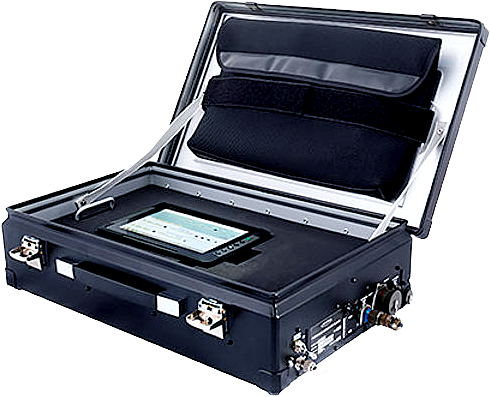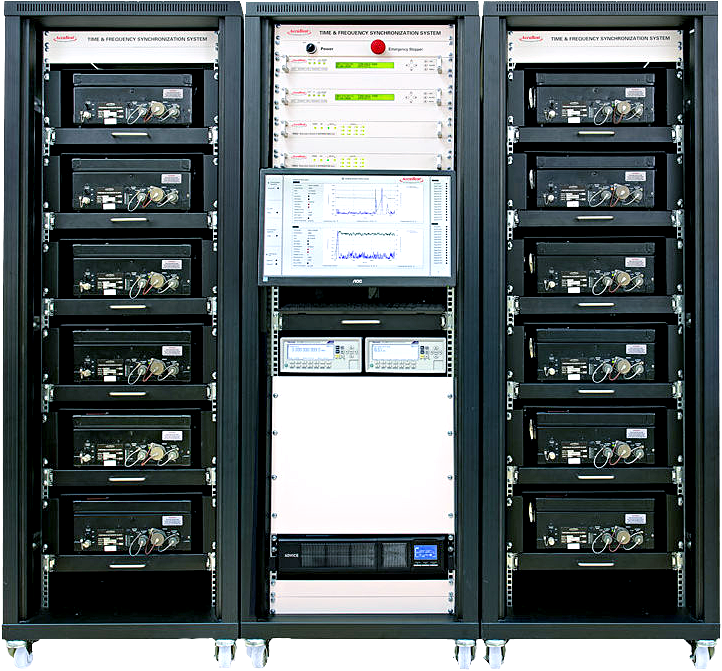Portable Atomic Clock for
Time & Frequency Dissemination
Portable atomic clocks for Time & Frequency enable critical mission timing and synchronisation, even in GNSS-denied environments. Many critical systems and applications rely on GNSS for time synchronisation, spanning areas such as Navigation, Communications, Identification, Remote Sensing, Intelligence, and Weapons. While most platforms and systems already use advanced Rubidium atomic clocks for timekeeping, initial synchronisation often requires a GNSS signal. However, it is well understood that GNSS signals (such as GPS, GLONASS, Galileo, etc.) can be easily blocked, jammed, or spoofed, either intentionally or unintentionally, which can prevent the proper setup of equipment and jeopardise system or mission performance.
To address this challenge, JJB offers the AR50-05, a portable calibration case designed to provide a reliable time dissemination solution in GNSS-denied environments. This ruggedised case houses a precise atomic clock, an internal backup battery, a tablet with a user-friendly Graphical User Interface for calibration, and all necessary cables for synchronising various types of atomic clocks. In cases of jamming or spoofing, the AR50-05 can be transported to the affected site, where it continues to maintain accurate Time of Day (TOD) and 1PPS outputs, powered either by an external DC input or its own internal battery.
At the site, the AR50-05 can be easily connected to systems via the supplied cables, ensuring precise TOD and 1PPS synchronisation across multiple platforms without relying on GNSS signals.
For customers with multiple AR50-05 calibration cases, the units can be stored in a Docking Station, which can simultaneously synchronise up to 12 units, ensuring consistent time and frequency across each one. The Docking Station is fully redundant and incorporates a highly accurate, stable reference clock, protected from GNSS jamming and spoofing using proprietary technology. When connected to the Docking Station, each AR50-05 receives the protected time and 1PPS, while its internal battery is charged. The Docking Station also monitors the status of each unit, including battery health, frequency lock, and any deviation from the desired frequency, while recording and storing data from field calibrations.
SITE MAP:
ABOUT US | SOLUTIONS | CONCESSIONS | CONTACT
LINKS:
Terms & Conditions | Privacy Policy | Cookies
© JJB Ltd. All rights reserved.
SITE MAP:
ABOUT US | SOLUTIONS | CONCESSIONS | CONTACT
LINKS:
Terms & Conditions | Privacy Policy | Cookies
© JJB Ltd. All rights reserved.
SITE MAP:
ABOUT US | SOLUTIONS | CONCESSIONS | CONTACT
LINKS:
Terms & Conditions | Privacy Policy | Cookies
© JJB Ltd. All rights reserved.


